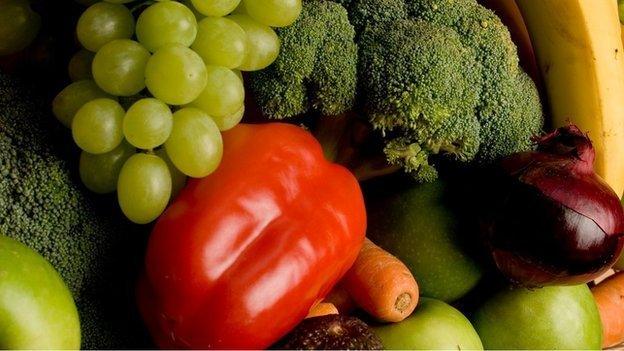Charity urges help for farmers to donate surplus crops
- Published
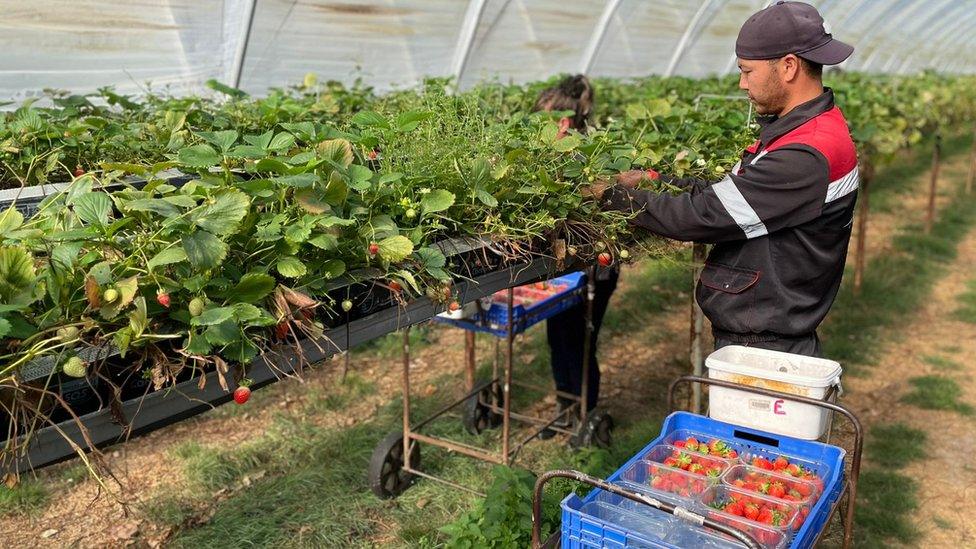
Fareshare said crops were going to waste because farmers could not afford to harvest and donate them
A food poverty charity is calling on the government to help farmers donate surplus fruit and vegetables.
Fareshare said it had been redistributing unsold fruit and vegetables stored at its Nottingham warehouse to community groups.
It said edible crops were going to waste because farmers could not afford to harvest and donate them.
Marcus Wichmann, who runs a community cafe, said fresh donations had made a difference in deprived areas.
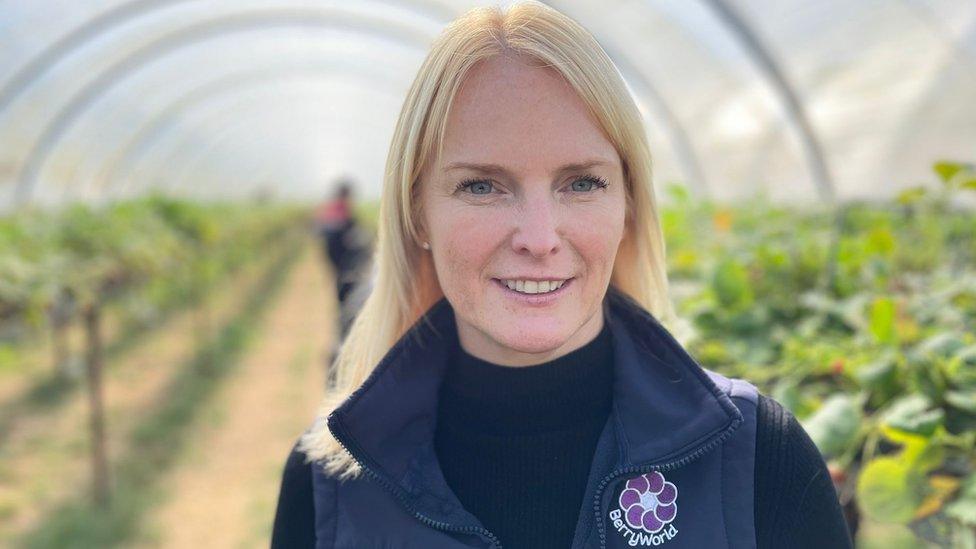
Farmer Jenny Tasker donates surplus produce to Fareshare
Fareshare said it had been storing and distributing fresh surplus food from its Lenton warehouse since 2019.
However, the charity said it operated on a small scale with 29 farms across the country, including six in the East Midlands, taking part in the scheme.
Jenny Tasker, who has a farm in North Wheatley, Nottinghamshire, grows thousands of tonnes of fruit for supermarkets every year and donates any surplus produce, including strawberries, to Fareshare.
"Heatwaves produce larger crops than we can sell, but that's not the only reason edible berries can go waste," she said.
"They can be too large or too small and we also have things we call mis-shape. The berry still tastes perfectly beautiful, but it's not necessarily what the shopper wants to consume."
'No-brainer'
Simone Connolly, the chief executive of Fareshare Midlands, said three million tonnes of edible food was wasted across UK farms and factories each year, which could make 100 million healthy meals and help tackle the cost of living crisis.
"A lot of fresh food is being ploughed back into fields because food organisations really can't afford to redistribute it to people that need it most," she said.
"It's a no-brainer. It's the cost of getting that food where it's needed is the challenge."
The charity said it has been supporting about 70,000 people across the Midlands, and a million nationally.
Ms Connolly added: "Years ago we'd just work with foodbanks, but now we're working with a much bigger array of organisations.
"Non-perishable food does not cut it. Packets, dried goods, can do so much for people's diets. Health inequality is caused by poor nutrition.
"We have to access more fresh fruit and vegetables to get to people that need it the most."
The charity said farmers now needed extra help to meet the cost of donating fresh surplus produce.
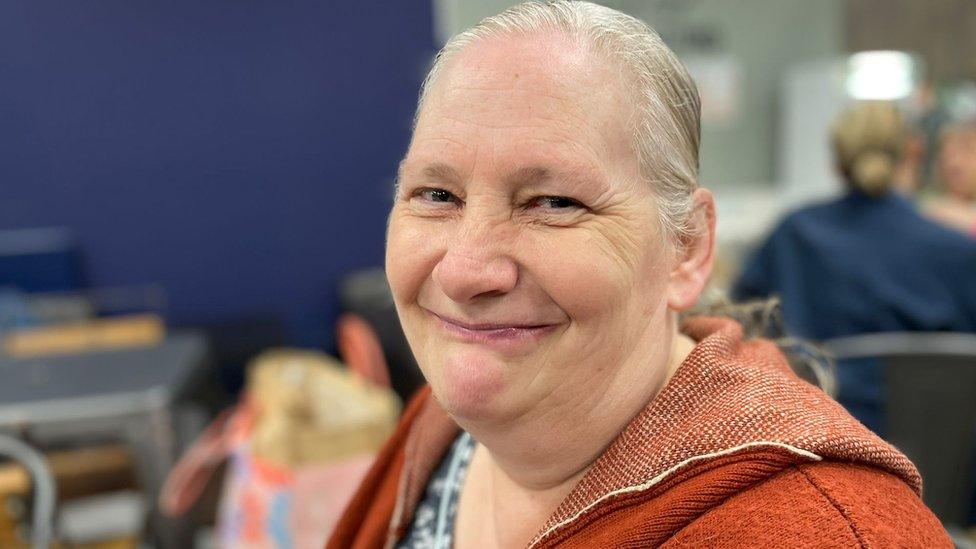
Fiona Green said eating fresh meals had made a big difference to her health
Food Hub, in Langold, near Worksop, is one of many community groups that has benefited from the donations.
Mr Wichmann said members pay a fraction of the supermarket price for a large shopping bag of surplus produce, and nutritious meals were sold for as little as £1.
"It's making so much difference because the area has such a high level of deprivation," he said. "We've seen people getting out of debt because of this."
One member, Fiona Green - who is a full-time carer - said: "Before I used to eat a lot of processed foods because they were cheaper, so this has made a huge difference to our lives."

Follow BBC East Midlands on Facebook, external, X, external, or Instagram, external. Send your story ideas to eastmidsnews@bbc.co.uk, external.
Related topics
- Published27 November 2017
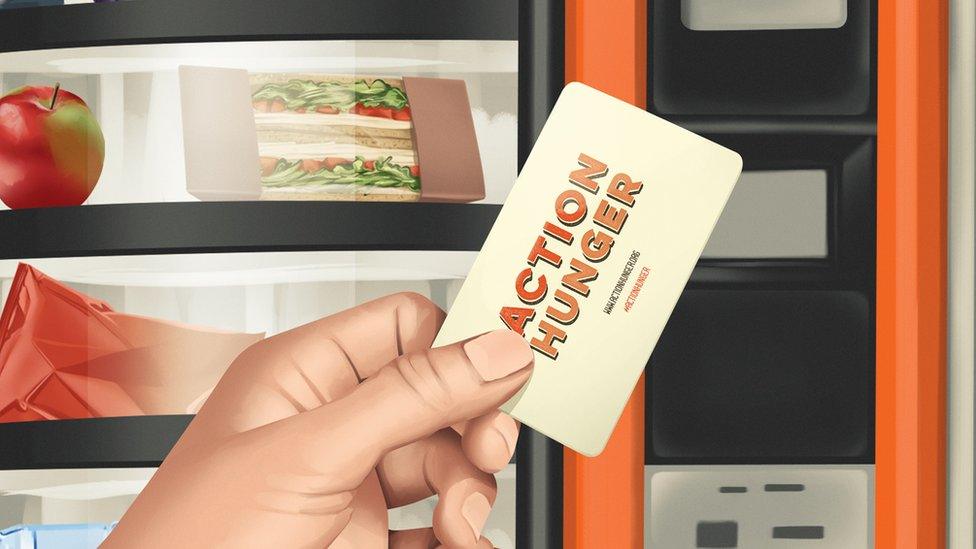
- Published16 October 2015
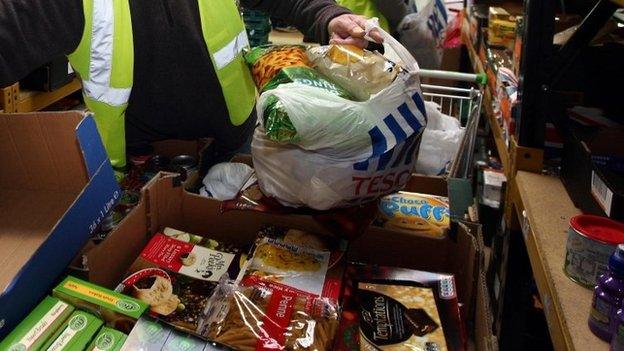
- Published3 August 2015
